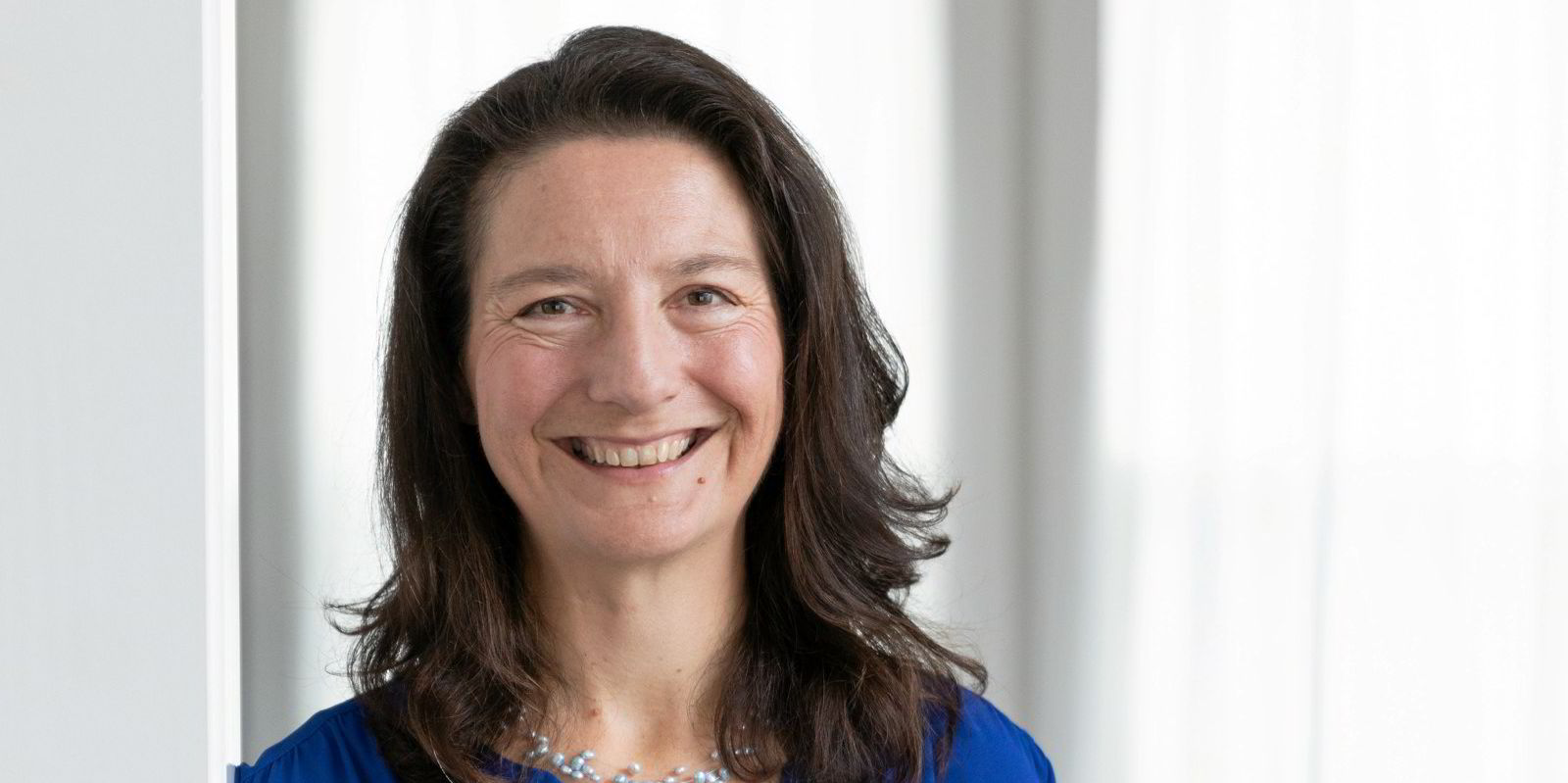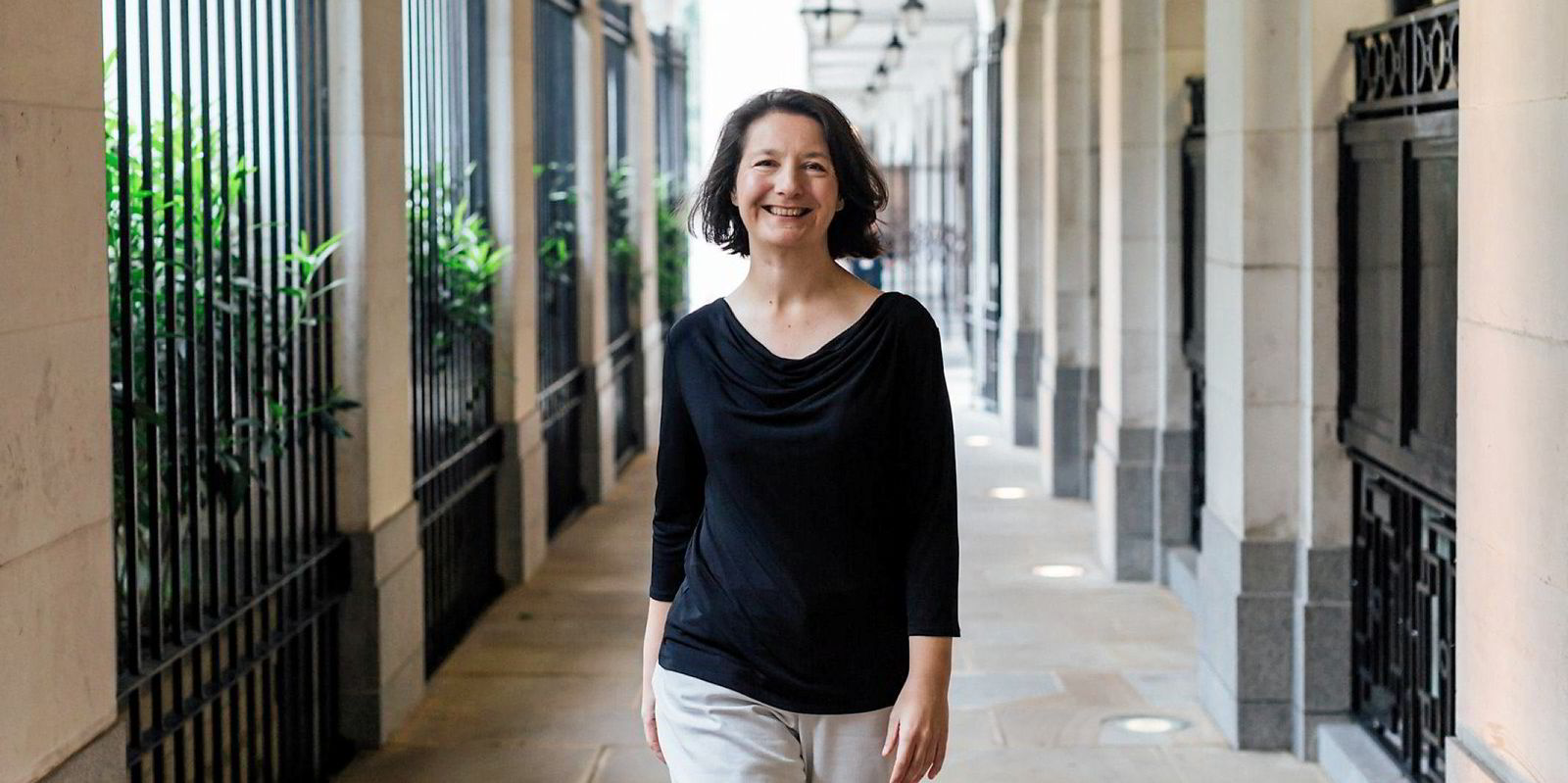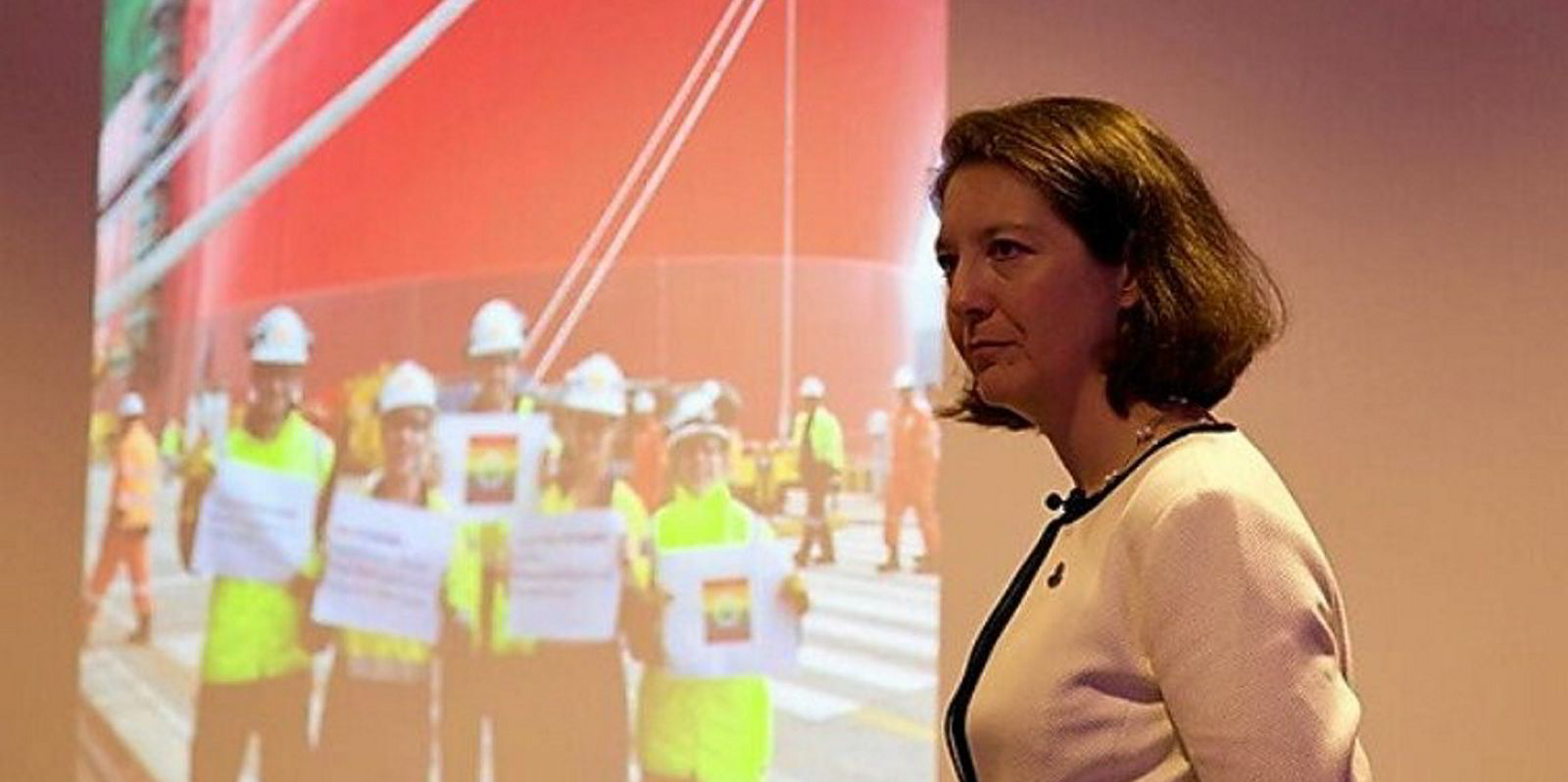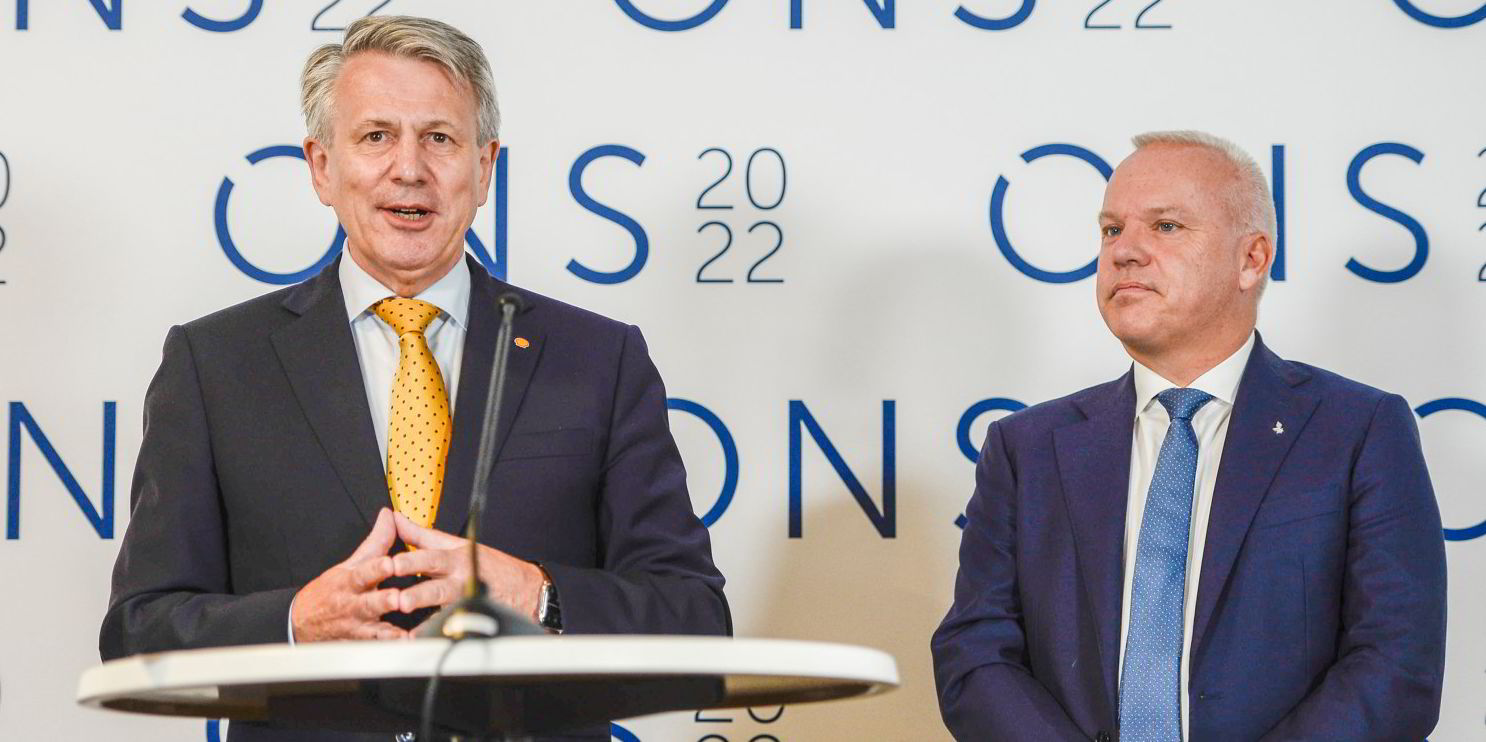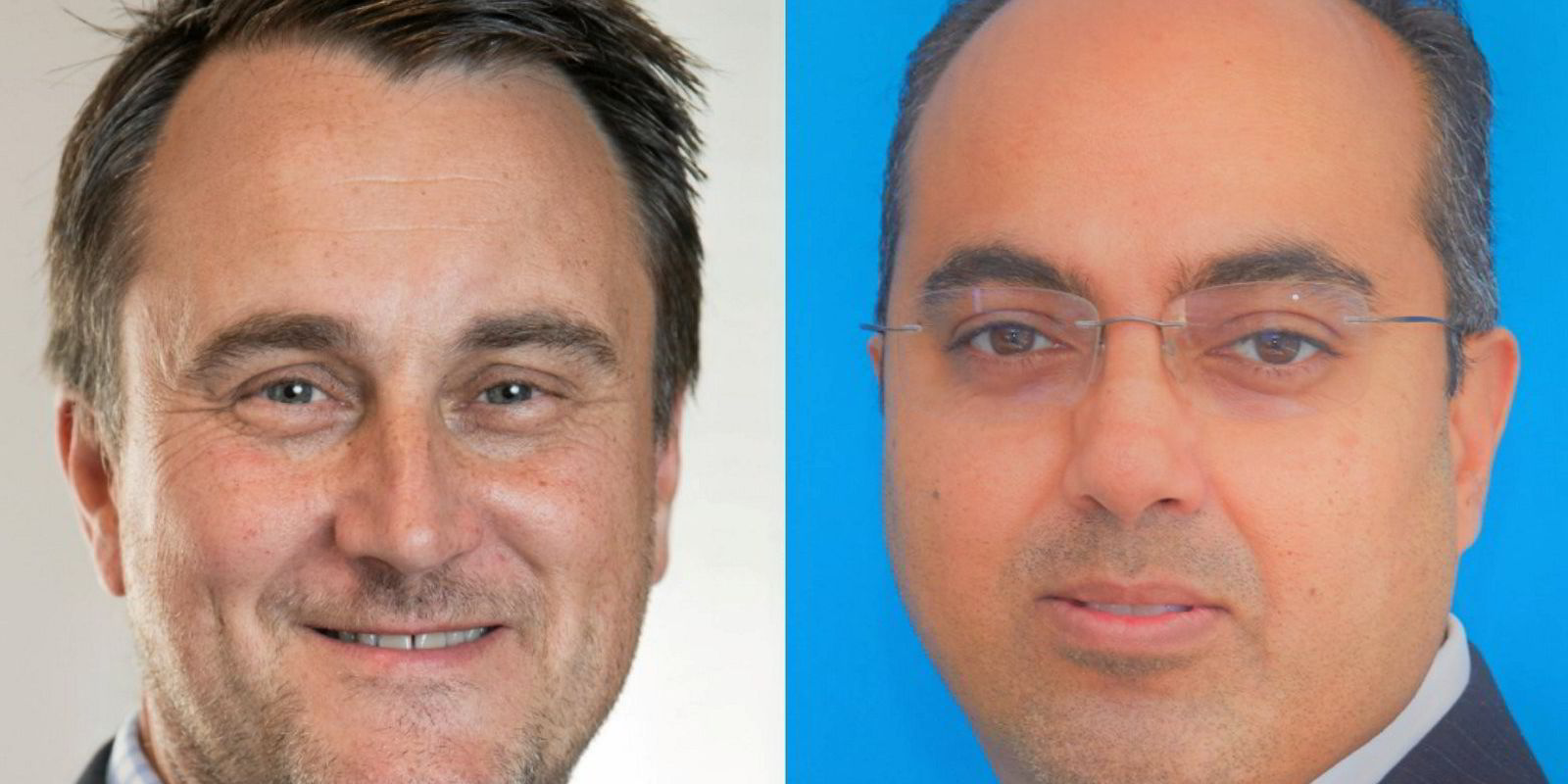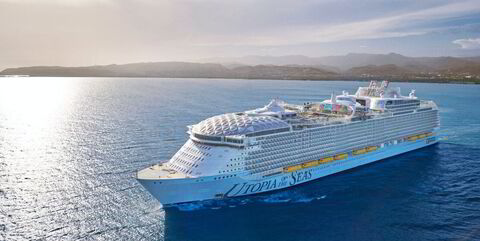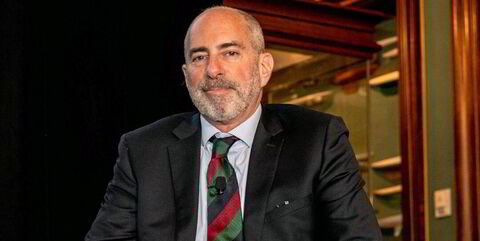Karrie Trauth is candid about the biggest challenge she has faced during her first year in the top shipping job at Shell.
Trauth, the energy major’s senior vice president for shipping & maritime, said it has been about balancing her own expectations, along with others in the business and wider industry who were asking: what is going to be different now that Karrie is on the scene?
“I took a very conscious decision coming into the role to not make radical changes in the first year, to take a step back, to take stock of what we do, how we do it,” she told TradeWinds in her first ever media interview. “If I’m honest with myself, that is the biggest challenge to be conscious of the pace that I took.”
Trauth shifted over from the US to take over the role from Grahaeme Henderson on 1 August 2021.
She said she has spent her first 12 months learning about parts of the global industry that she was less familiar with, such as protection and indemnity and the International Maritime Organization’s reach and influence.
She has been tuning in with Shell’s nascent hydrogen and carbon capture utilisation and storage businesses, and getting a deeper understanding of the major’s trading activities.
Trauth has also had to wrestle with the fallout from Russia’s invasion of Ukraine in February and the ensuing raft of new sanctions.
Since early March, Shell has axed all 40 of the Russian-owned or managed vessels it had on charter and, where it has Russia-linked vessels working under contract, the company said it will discontinue their use as soon as possible.
The scope and timing of the top shipping job at Shell seem to have hit the spot for Trauth.
A naval architect by training and self-confessed “technology nerd”, she sees the world and maritime industry as being at an “inflection point”.
But she said it is the development, innovation and deployment of the technology needed to decarbonise shipping along with the cargoes and fuels of the future that make the position so interesting.
“I wouldn’t have imagined I’d be in this role now, but I wouldn’t be in any other role,” she said.
Shell likes to stick to ballpark numbers on its now almost entirely chartered shipping fleet.
Trauth gives these as 1,000 floating assets, of which 750 are in the downstream business and roughly 250 are on long-term charter. Shell also technically manages 25 vessels.
She said chartering remains the major’s preferred model for its shipping today, adding that there is “always a conversation on buy versus lease”.
Trauth is upfront that the incoming Energy Efficiency Existing Ship Index (EEXI) and Carbon Intensity Indicator (CII) regulations are occupying time for her commercial strategies team and Shell’s freight desks as the company assesses the implications of the new rules.
For newbuildings, she said Shell has worked with owners and yards to find the most energy-efficient technologies available today to install.
But for chartered-in vessels, the levers are energy-efficient technologies that can be retrofitted and operational efficiencies.
Trauth said it is an “owner-by-owner conversation” both about where their interests and Shell’s needs lie.
“We came to recognise that the operation of the vessel in many cases is as important as the equipment that’s installed on the vessels,” she said.
“There is a piece of work going on now to analyse the emissions of our entire fleet, but I expect we’ll be having bilateral conversations with the owners as we get towards the end of the year.”
Trauth is careful to give Shell’s thoughts on future fuels and not her own.
She said the major remains “a champion of LNG” as the lowest carbon emission fuel available today and with pathways to bio- and synthetic-LNG.
Shell sees fuel cells as unlocking the way forward for hydrogen and is undertaking two field trials on these.
Trauth said the first large-scale liquid hydrogen carrier could be on the water by the end of the decade.
A closer prospect is a large-size liquefied CO2 carrier — Shell is already building two 7,500-cbm ships with the Northern Lights project.
“It is technically feasible but it is a question of the speed of demand,” she said.
Trauth said Shell is participating in some ammonia projects — “mostly to learn”.
“Based on what we see today, the challenges with managing the toxicity of ammonia make it, we think, significantly less likely as a destination fuel than some of the other alternatives,” she said.
Similarly, the company is keeping a “watching brief” on methanol, where she feels the research and development effort will focus on an ability to manufacture and scale bio and synthetic versions.
So, what would she opt for as a shipowner today?
“I would be considering all of the options that are on the table”, and asking questions about the availability of fuel, locations and the security of supply.
Until today, she said the answer has been LNG dual fuel and Shell has not seen a shift in this yet.
Next on the agenda?
Trauth references a new piece of strategy work looking at how Shell shipping & maritime supports, delivers and underpins the group’s work in decarbonising end customers and how it interacts with the wider industry.
She is a fan of the Global Maritime Forum of which Shell is a member, describing it as “having a reach that other fora would like”.
And the highlight for her first year?
“The Suiso Frontier” — the world’s first liquid hydrogen carrier.
“I am just in awe of what it took right across Shell and with our partners to pull that off — get that vessel into operation and ship a first cargo,” she said.
“We have done so many cool things this year but that one because it touches everyone, and it offers a promise of a different future.”
Career
Shell: June 2012 to present:
- August 2021 to present: Senior vice president Shipping & Maritime (London, UK)
- January 2019 to July 2021: General manager Shipping & Maritime Americas/Maritime chief engineer (Houston, USA)
- November 2016 to December 2018: General manager Shipping & Maritime Technology and Innovation/Global discipline head (London, UK)
- July 2014 to October 2016: Manager LNG Marine Fuel Projects (London, UK)
- June 2012 to June 2014: Shipping project manager (Houston, USA)
Ingalls Shipbuilding: February 2010 to June 2012
- DDF 1000 Programme manager
Northrop Grumman Shipbuilding: February 2003 to January 2010
- Several positions from engineering manager to site director of Gulfport operations
John J McMullen Associates: November 1998 to February 2003
- Senior naval architect
US Navy: September 1994 to October 1998
- Surface warfare officer
Education
- Massachusetts Institute of Technology: SB Ocean Engineering
- Georgetown University McDonough School of Business: MBA
Current positions
- June 2021 to present: Member of the supervisory board and chair of the defence & security committee at the UK Chamber of Shipping
- June 2021 to present: Board chair at Blue Sky Maritime Coalition
Previous positions
- Greater Houston Port Bureau (director); Sigtto (director) and Society of Women Engineers (International Senator)
